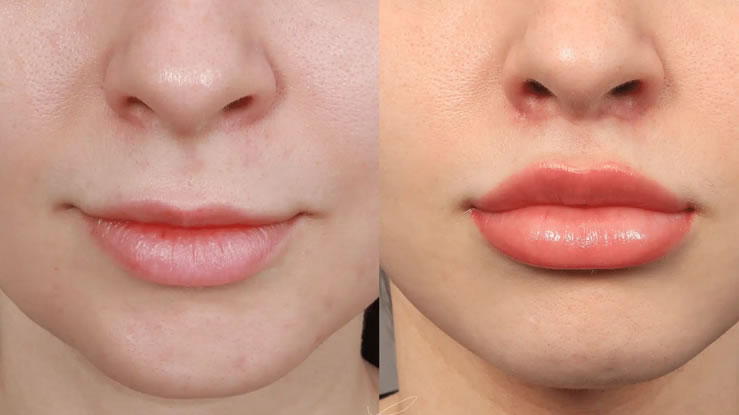As the temperature drops and the air turns crisp, many of us experience changes in our skin. Winter can bring about dryness, irritation, and even sensitivity due to the combination of cold weather, indoor heating, and low humidity. To keep your skin healthy and glowing during this chilly season, follow these essential tips for winter skincare.
1. Hydrate from the Inside Out
Proper hydration is crucial during winter months. When the air is dry, your skin can easily lose moisture, leading to dryness and flakiness.
- Drink Plenty of Water: Aim for at least 8 glasses of water a day to keep your skin hydrated. Herbal teas can also contribute to your fluid intake.
- Eat Hydrating Foods: Incorporate fruits and vegetables with high water content, like cucumbers, oranges, and strawberries, into your diet.
2. Switch to a Richer Moisturizer
Your regular moisturizer might not provide enough hydration in winter. Opt for a thicker, cream-based moisturizer to lock in moisture and create a protective barrier against the cold.
- Look for Ingredients: Choose products with hydrating ingredients like hyaluronic acid, glycerin, and ceramides, which help retain moisture.
3. Exfoliate Gently
While exfoliation is essential for removing dead skin cells and promoting cell turnover, it’s important to be gentle in winter. Over-exfoliating can lead to irritation and further dryness.
- Choose a Gentle Exfoliant: Use a mild chemical exfoliant, like lactic acid or a soft physical scrub, once a week to maintain smooth skin without stripping it of moisture.
4. Use a Humidifier
Indoor heating can significantly lower humidity levels, drying out your skin. Using a humidifier in your home can help add moisture to the air.
- Placement Matters: Place the humidifier in your bedroom while you sleep to benefit from the added moisture overnight.
5. Protect Your Skin from the Elements
Cold winds and harsh weather can damage your skin barrier. It’s essential to take protective measures when going outside.
- Layer Up: Wear gloves and a scarf to protect your face and hands from cold air. Opt for a good lip balm to prevent chapped lips.
- Sunscreen is Still Important: Even in winter, UV rays can damage your skin. Apply a broad-spectrum sunscreen with at least SPF 30, especially if you’re spending time outdoors.
6. Adjust Your Cleansing Routine
Using a gentle cleanser is crucial in winter to avoid stripping your skin of its natural oils.
- Opt for Creamy Cleansers: Switch to a hydrating or creamy cleanser that won’t leave your skin feeling tight or dry after washing.
- Limit Hot Showers: While hot showers can be tempting in winter, they can strip your skin of moisture. Opt for lukewarm water instead and keep showers short.
7. Incorporate Oils into Your Routine
Facial oils can provide an extra layer of hydration and help seal in moisture.
- Choose Non-Comedogenic Oils: Look for oils like jojoba, rosehip, or argan oil, which hydrate without clogging pores. Apply oil after your moisturizer for added hydration.
8. Pay Attention to Your Hands and Feet
Hands and feet can become particularly dry in winter, so it’s essential to give them extra attention.
- Hand Cream: Use a rich hand cream regularly, especially after washing your hands. Consider wearing cotton gloves overnight after applying cream for deep hydration.
- Foot Care: Exfoliate and moisturize your feet regularly, and wear thick socks to keep them warm and hydrated.
9. Don’t Forget About Your Diet
What you eat can affect your skin’s health. Incorporating specific nutrients can support skin hydration and repair.
- Focus on Omega-3 Fatty Acids: Foods rich in omega-3s, like salmon, walnuts, and flaxseeds, can help maintain skin moisture.
- Vitamin C for Collagen Production: Citrus fruits, bell peppers, and broccoli are excellent sources of vitamin C, promoting collagen production for healthy skin.
10. Listen to Your Skin
Every skin type is different, and what works for one person may not work for another. Pay attention to how your skin reacts to different products and adjust your routine as needed.
- Be Flexible: If you notice increased dryness or irritation, consider modifying your skincare products or seeking advice from a dermatologist.
Caring for your skin in winter requires a bit of extra effort, but with the right routine, you can maintain healthy, hydrated skin throughout the season. By prioritizing hydration, using protective products, and being mindful of your skincare choices, you can enjoy radiant skin even in the coldest months. Remember, your skin deserves love and attention all year round!


















